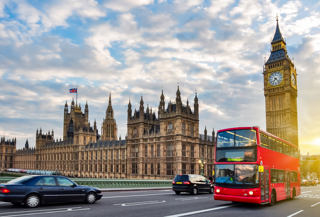More than half (51%) of UK motorists say public transport needs to be more affordable before they will use it, a survey by Venson Automotive has found.
It also discovered that more than one-third of drivers (35%) agree that the public transport infrastructure needs investment to ensure it will be able to adequately support an increase in users.
Venson Automotive Solutions’ client management director Simon Staton (pictured) said: “The rise in rail fares in 2018 won’t be welcome news for motorists who are now also under pressure to ditch their cars, as cities across the UK look to clamp down on the most polluting vehicles.
“It’s clear from our survey that motorists don’t think our towns and cities are ready to ban petrol and diesel cars, without offering drivers viable alternatives.
“It’s not just public transport that needs reinforcing; a further 26% of drivers we surveyed said they would like to see greater investment in cycle highways and pedestrian walkways in cities and towns.
London has introduced the Toxic Fuel Charge (T-Charge), charging the most polluting vehicles a daily charge of £10 on top of the congestion charge of £11.50.
Birmingham, Leeds, Southampton, Derby and Nottingham have all been advised, by Defra, to impose charges for some polluting diesel vehicles by 2020.
Consequently, 31% of drivers surveyed by Venson say they will think twice about driving in city and town centres that levy a toxicity charge for use of petrol and diesel vehicles.
The Venson findings coincide with research published by Trainline for Business's newly-launched SME Business Travel Index, which found that ‘travelling by train’ and ‘driving in their own car’ were ranked as the most popular methods of business travel for SMEs, with both being used by over two-thirds (68%) of business travellers in the past 12 months.
Of the 26% who thought business travel budgets have declined, 40% felt increasing pressure to restrict the frequency of business travel while 37% were increasingly expected to choose cheaper options of travel.
“Many of those we surveyed want to see significant investment in public transport before a ban comes into place,” said Staton.
“However, HS2, the rail line designed to connect major UK cities, including London, Birmingham, Sheffield, Leeds and Manchester won’t be running until 2026; six years after the proposed 2020 ban.
“Although people support the idea of cleaner cities, they also want affordable access to urban centres, which means many feel the bans are coming too soon.”


















Login to comment
Comments
No comments have been made yet.